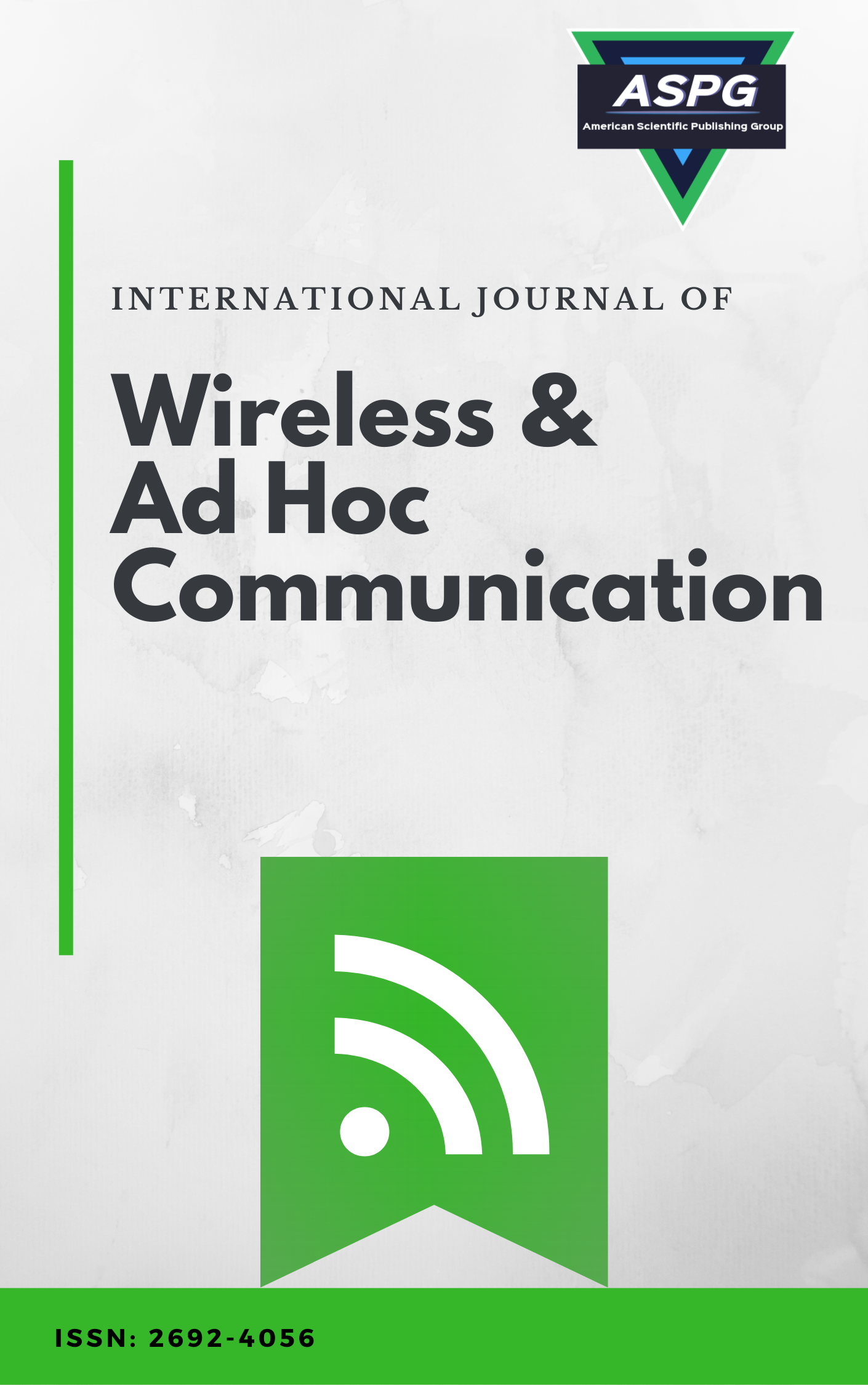

Volume 8 , Issue 2 , PP: 32-39, 2024 | Cite this article as | XML | Html | PDF | Full Length Article
Hala Shaker Mehdy 1
Doi: https://doi.org/10.54216/IJWAC.080203
The primary contribution of this research lies in its innovative use of artificial intelligence to automate the trust assessment process in WBANs, providing a dynamic solution to the challenge of maintaining data integrity and network reliability. The SmartTrust (SmTr) framework uses advanced machine learning techniques to accurately analyze historical and behavioral data of network nodes. Thus, computer trustworthiness scores allow one to effectively distinguish between trustworthy nodes and potentially malicious nodes. WBANs and their services are rapidly gaining popularity, but they pose unprecedented security challenges. These requirements are being met with WBAN as it evolves. In an increasingly complex, heterogeneous, and evolving mobile environment, completing these tasks can be difficult. A more secure and adaptable WBAN environment can be achieved by using trust management to meet WBAN security requirements. The reliability of a wireless sensor network is evaluated through behavioral evidence. Researchers use the results of node behavior almost directly or combine them with the results of third-party evaluation, instead of studying the original evidence of node behavior and ignoring the analysis of the history of node behavior, which leads to low confidence, rationality, and reliability. SmartTrust (SmTr) is a new approach based on artificial intelligence (AI) to improve trust and reliability over wireless body area networks (WBAN). As a modern healthcare system, this technology can be considered. Experimental results from implementing the SmTr framework demonstrate its effectiveness in improving network resilience against security threats, improving resource allocation, and thus increasing the quality and reliability of healthcare delivery.
SmartTrust , WBAN , Artificial intelligence , Trust assessment , Security
[1] B. Tjanaka et al., "Pyribs: A Bare-Bones Python Library for Quality Diversity Optimization," arXiv:cs.NE, 2023.
[2] D. D. Olatinwo et al., "IoT-Enabled WBAN and Machine Learning for Speech Emotion Recognition in Patients," Sensors (Basel, Switzerland), 2023.
[3] H. Kaur et al., "Securing and Managing Healthcare Data Generated By Intelligent Blockchain Systems on Cloud Networks Through DNA Cryptography," J. Enterp. Inf. Manag., 2023.
[4] F. Jia et al., "A Novel Framework of Cooperative Design: Bringing Active Fault Diagnosis Into Fault-Tolerant Control," IEEE Trans. Cybern., 2023.
[5] F. Lu et al., "Transmission Power Control Strategy for Wireless Body Area Network Based on Energy and Channel Aware," in Conf. Mach. Learn. Comput. Appl., 2023.
[6] B. Saha et al., "BlockTheFall: Wearable Device-based Fall Detection Framework Powered By Machine Learning and Blockchain for Elderly Care," arXiv:cs.CY, 2023.
[7] Q. Zhang et al., "Design of Power Transmission and Transformation Engineering Design Review System Based on Spring Struts Hibernate Framework," Intelligent Systems, Communications, and Computer Networks, 2023.
[8] A. M. Ali, M. A. Ngadi, I. I. Al Barazanchi, and P. S. JosephNg, “Intelligent Traffic Model for Unmanned Ground Vehicles Based on DSDV-AODV Protocol,” Sensors (Basel)., vol. 23, no. 14, pp. 1–13, 2023, doi: 10.3390/s23146426.
[9] D. E. D. I. Abou-Tair et al., "A Distributed and Secure Self-Sovereign-Based Framework for Systems of Systems," Sensors (Basel, Switzerland), 2023.
[10] S. T. Ahmed et al., "AITel: EHealth Augmented-Intelligence-Based Telemedicine Resource Recommendation Framework for IoT Devices in Smart Cities," IEEE Internet of Things J., 2023.
[11] H. R. Abdulshaheed, Z. T. Yaseen, A. M. Salman, and I. Al-Barazanchi, “A survey on the use of WiMAX and Wi-Fi on Vehicular Ad-Hoc Networks (VANETs),” IOP Conf. Ser. Mater. Sci. Eng., vol. 870, no. 1, 2020, doi: 10.1088/1757-899X/870/1/012122.
[12] N. J. Qasim, S. M. Mohammed, A. S. Sosa, and I. Al Barazanchi, “Reactive protocols for unified user profiling for anomaly detection in mobile Ad Hoc networks,” Period. Eng. Nat. Sci., vol. 7, no. 2, pp. 843–852, 2019.
[13] H. R. Abdulshaheed, S. A. Binti, and I. I. Sadiq, “Proposed a Smart Solutions Based-on Cloud Computing and Wireless Sensing,” Int. J. Pure Appl. Math., vol. 119, no. 18, pp. 427–449, 2018.
[14] I. Al Barazanchi, H. R. Abdulshaheed, M. Safiah, and B. Sidek, “Innovative technologies of wireless sensor network : The applications of WBAN system and environment,” Sustain. Eng. Innov., vol. 1, no. 2, pp. 98–105, 2020.
[15] I. Al Barazanchi et al., “Proposed a New Framework Scheme for the PATH LOSS in Wireless Body Area Network,” Iraqi J. Comput. Sci. Math., vol. 3, no. 1, pp. 11–21, 2022.
[16] B. Belgodere et al., "Auditing and Generating Synthetic Data with Controllable Trust Trade-offs," arXiv:cs.LG, 2023.
[17] M. Havrda and A. Klocek, "Well-being Impact Assessment of Artificial Intelligence - A Search for Causality and Proposal for An Open Platform for Well-being Impact Assessment of AI Systems," Eval. Program Plann., 2023.
[18] R. Latif et al., "MarketTrust: Blockchain-based Trust Evaluation Model for SIoT-based Smart Marketplaces," Scientific Reports, 2023.
[19] Y. Yin and H. Fang, "A Novel Multiple Role Evaluation Fusion-Based Trust Management Framework in Blockchain-Enabled 6G Network," Sensors (Basel, Switzerland), 2023.
[20] H. Elhamdadi et al., "Vistrust: A Multidimensional Framework and Empirical Study of Trust in Data Visualizations," arXiv:cs.HC, 2023.
[21] M. J. Dechant, O. Lukashova-Sanz, and S. Wahl, "In The User's Eyes We Find Trust: Using Gaze Data As A Predictor or Trust in An Artifical Intelligence," arXiv:cs.HC, 2023.
[22] O. B. Sghaier, J.-S. Boudrias, and H. Sahraoui, "Toward Optimal Psychological Functioning in AI-driven Software Engineering Tasks: The SEWELL-CARE Assessment Framework," arXiv:cs.SE, 2023.
[23] J. Helenason et al., "Exploring The Feasibility of An Artificial Intelligence Based Clinical Decision Support System for Cutaneous Melanoma Detection in Primary Care - A Mixed Method Study," Scandinavian Journal of Primary Health Care, 2023.
[24] H. Mohammadi, K. Thirunarayan, and L. Chen, "CVII: Enhancing Interpretability in Intelligent Sensor Systems Via Computer Vision Interpretability Index," Sensors (Basel, Switzerland), 2023.
[25] J. Miao et al., "Ethical Dilemmas in Using AI for Academic Writing and An Example Framework for Peer Review in Nephrology Academia: A Narrative Review," Clinics and Practice, 2023.